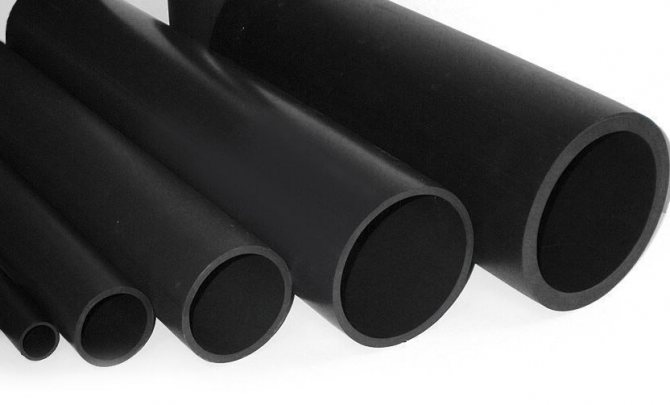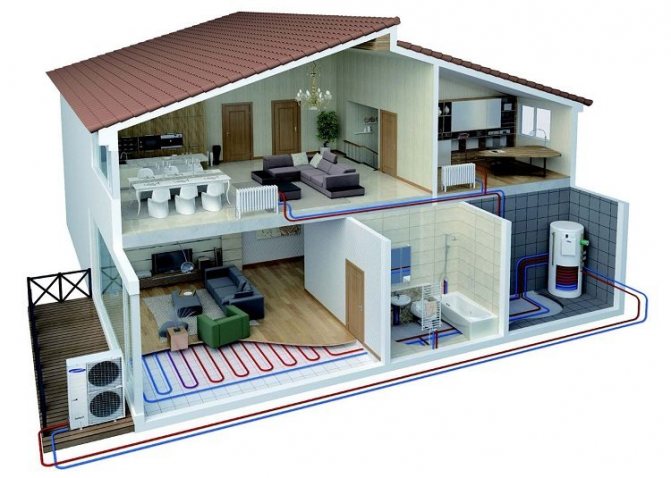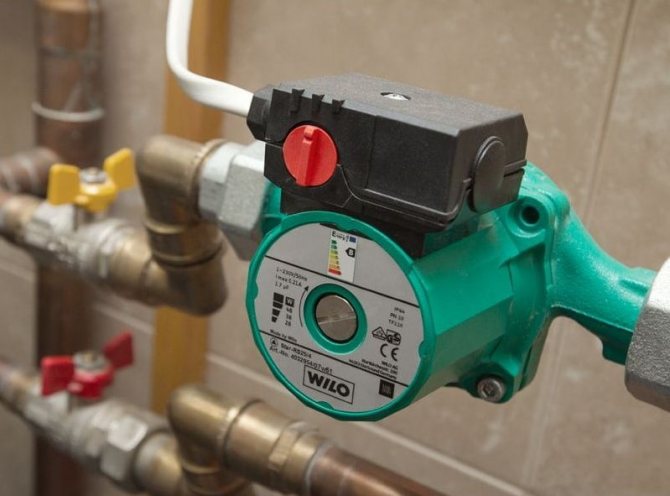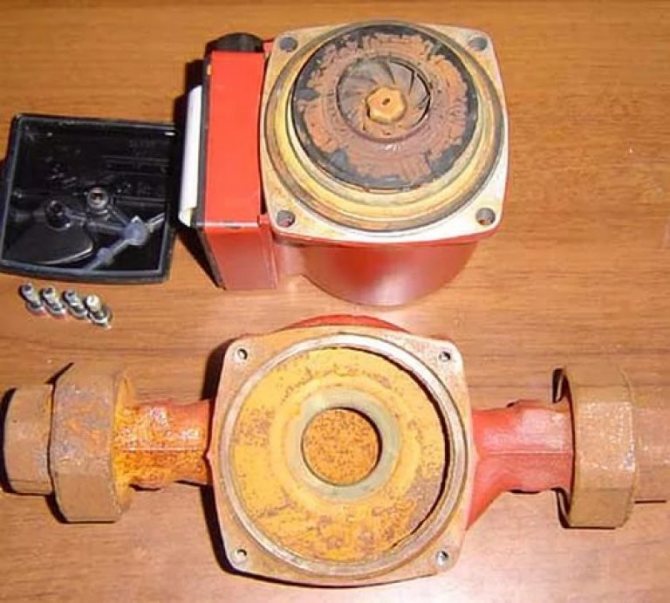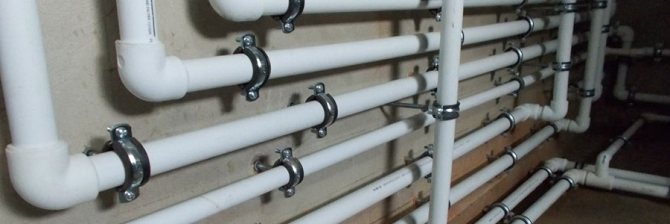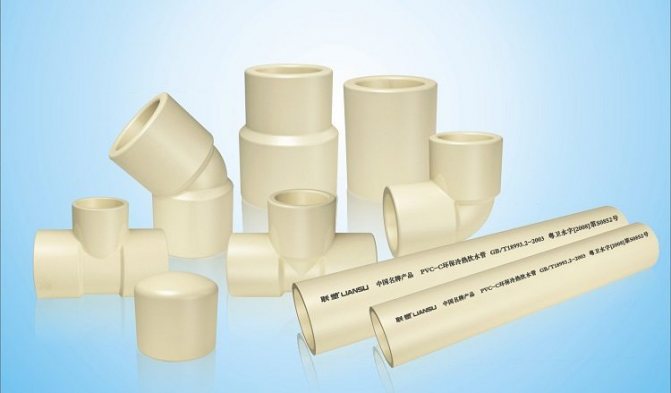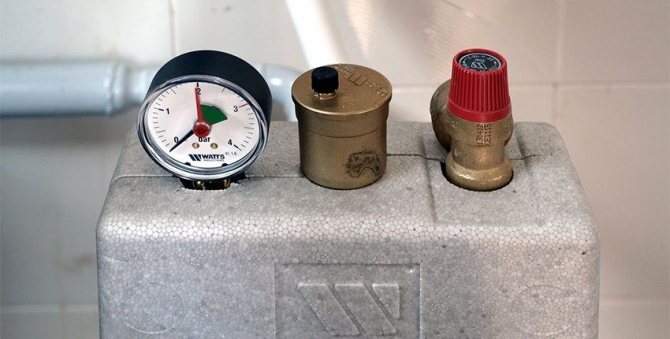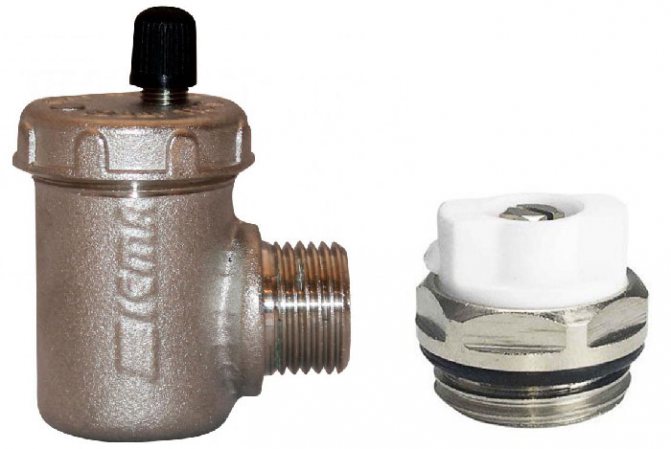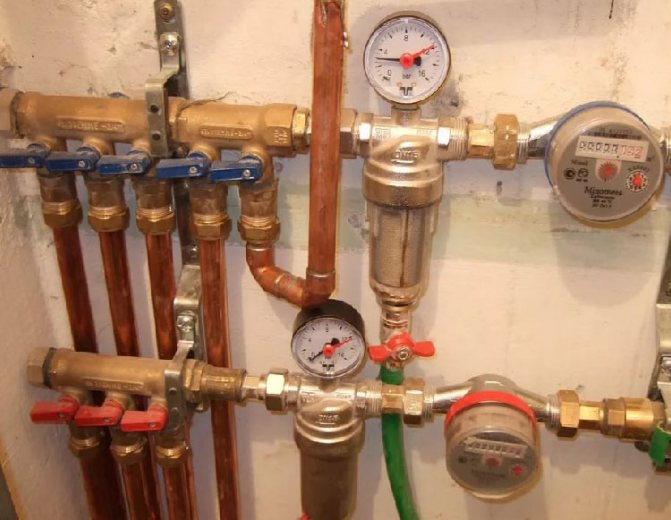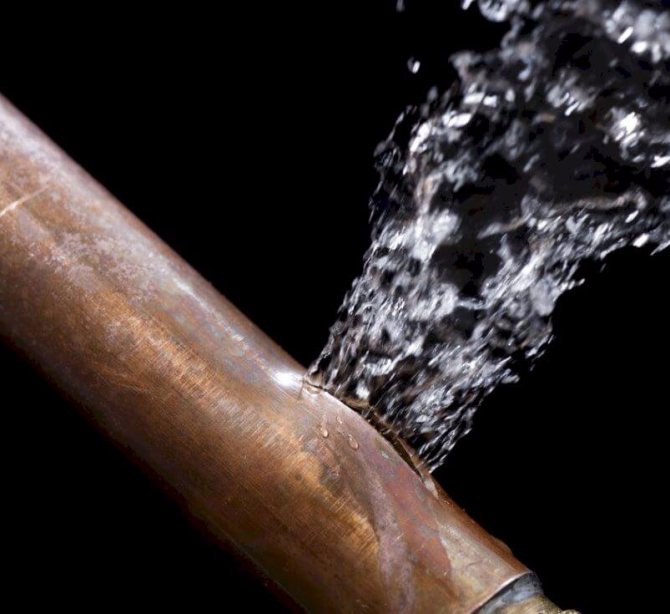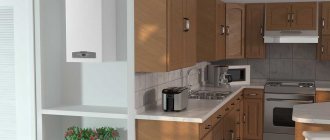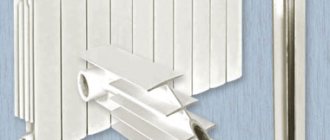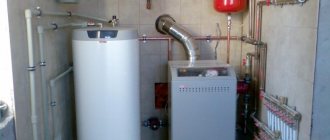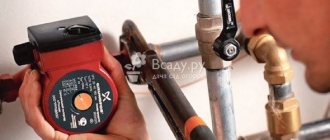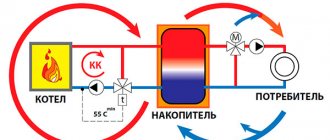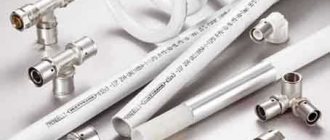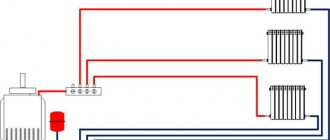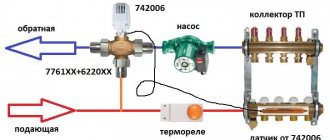Types of noise and its diagnostics
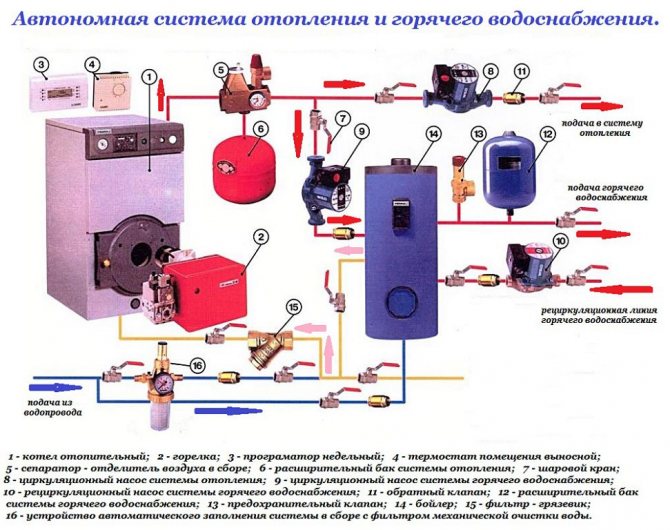
House heating system
If water makes noise in the heating pipes during the operation of the heat supply, then there are certain reasons for this effect. First you need to identify them, and then proceed to reduce the noise or eliminate it completely.
Why is the water making noise in the heating pipes and how to correct this deficiency correctly? Let's deal with the main types of extraneous sounds. They indicate the objective factors in the occurrence of the undesirable effect:
- Crackling pipes. Occurs when the heating system is turned on;
- Clicks that appear at regular intervals;
- Constant hum in highways;
- A barely audible knock.
All these side effects - noise in the heating battery or radiators significantly reduce the comfort of living in the house. In addition, they may indicate that the heating supply is not working properly. If you do not take action to remedy the situation in time, some heating element may fail.
If the heating pump or other component of the system makes noise, you should first try to localize the cause of the extraneous sounds. To do this, it is recommended to use the following technique:
- Trace the frequency of occurrence of the effect.
- Try to identify the relationship - an increase in temperature in pipes, pressure surges, etc.
- Make sure that the noise in the heating boiler comes from it, and not from other objects in the boiler room.
If it has been identified that the source is a component of the heating system, certain actions should be taken to eliminate this phenomenon.
Often, noise in the heating riser appears due to faulty elements of the safety group - an air vent and a drain valve. Therefore, it is recommended to first check their functionality.
Pluses of steel pipe
To avoid corrosion, it is better to use stainless steel pipes for heating, however, their cost is higher.
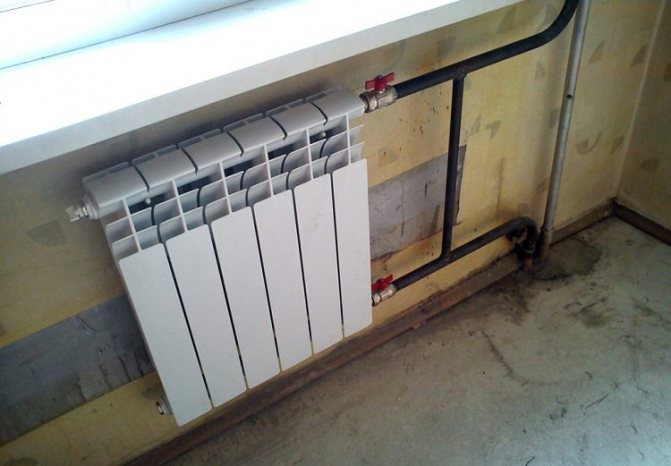

Steel pipes have been used in heating systems for a very long time and are most often found in apartment buildings
The main advantages of black steel products include:
- the ability to withstand heavy loads of a mechanical nature and shock;
- high temperature, significant pressure and water hammer have no effect;
- no need for compensation devices;
- excellent rigidity.
Even if the water temperature is at its maximum, the pipes have little linear expansion. These characteristics make it possible to define steel products as the best for heating systems with natural or combined circulation.
It is good to use them where it is difficult to regulate the water temperature and it is imperative to observe the slopes of the heating heat pipes. An example of such systems can be complexes that operate from a solid fuel boiler or a furnace with a heat exchange part.
They should use such a heating pipe as only capable of withstanding the boiling of the coolant in an emergency.
Noise in heating radiators
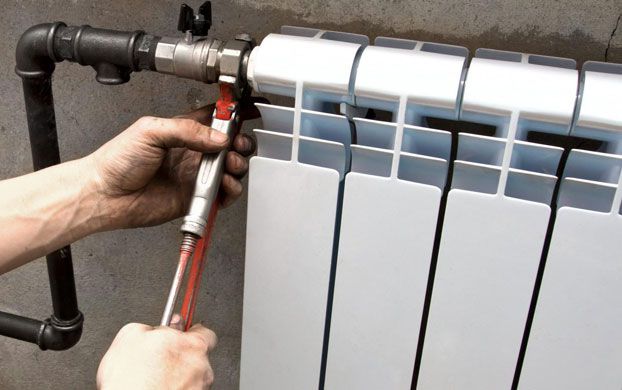

Heating radiator repair
To identify why heating radiators make noise, you must first check their condition. Often the reason for this is their breakdown - damage to the case or other obvious design defect. In this case, a battery replacement or restoration work is performed.
If everything is normal with the appearance and integrity, the type of noise is determined. More often the effect occurs in the form of clicks or constant hum. This can be explained by several factors:
- The appearance of a small airlock... It only slightly hinders the movement of hot water, but at the same time there is a hum in the system;
- A large number of foreign elements in the heating device... This is a common reason why radiators make noise;
- Malfunctions of the thermostat... The check stem has shifted resulting in unwanted noise defects;
- Incorrect battery installation... Vibration during the flow of the heating medium is transmitted to the mounting units in the wall.
These are the main causes of noise in radiators. After correct diagnosis, you can start to work to reduce the sound effects.
In a centralized heating system, only a management company can fix a noisy riser. To do this, you must draw up a statement and hand it over to representatives.
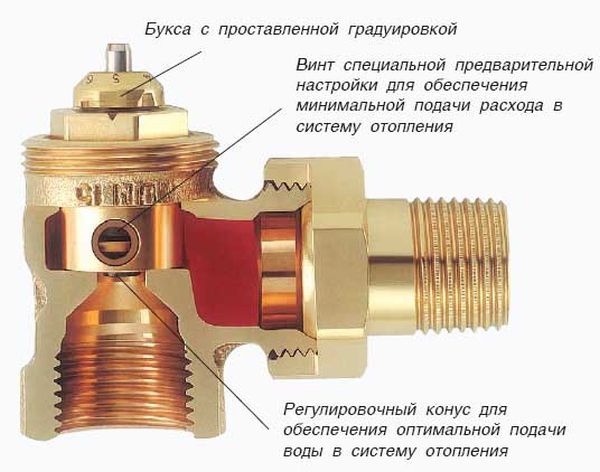

Mayevsky crane design
The elimination of the airlock can be done using the installed Mayevsky crane. It is designed specifically for this purpose.
With the noise of the heating batteries, the autonomous heat supply should be stopped so that the water temperature drops to + 25-30 ° C. Then you should do the following:
- Open Mayevsky's tap.
- Fill the heating system with water gradually.
- Wait until coolant flows from the tap pipe. It should weave for 1.5-2 minutes so that the air lock is completely removed.
Then the system is fully started up and checked to see if the noise has appeared in the heating radiators again. If the cause has been identified correctly, this effect will no longer occur.
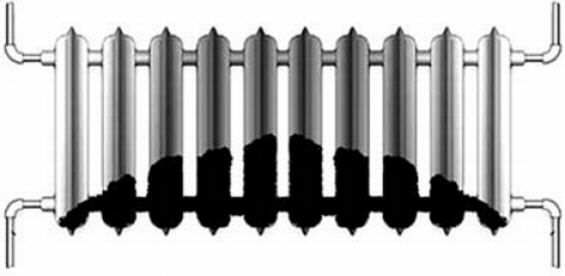

Debris concentration in the radiator
To eliminate noise in the radiator due to a large amount of debris, the condition of the strainer is first checked. The presence of foreign elements in it (the remains of rusting pipes and radiators, limescale) indicates a clogged system.
Having found out the cause of the noise in the radiators, the system should be cleaned. To do this, you can use several ways:
- Hydrodynamic... Garbage and limescale are removed from the mains and batteries under the action of a strong pressure of water;
- Chemical... Special reagents decompose the clog into small fractions, which are then flushed out of the heating system.
In this way, noise can be eliminated.
Before choosing a cleaning technology, in particular a chemical one, it is necessary to read the instructions for using the composition or method. In some cases, they can negatively affect the integrity of system components.
It is easiest to diagnose the appearance of noise in heating radiators due to improper installation. Its source is fasteners installed in the walls. In this case, it is necessary to replace them and re-install them.
The noise in heating radiators can be caused not only by the problem in them. In some cases, the cause is malfunctioning of other system components - boilers or pumps. Experts recommend a comprehensive approach to solving the issue of noise in heating radiators. Only a complete diagnosis will help determine the true cause.
Noise in heating pipes
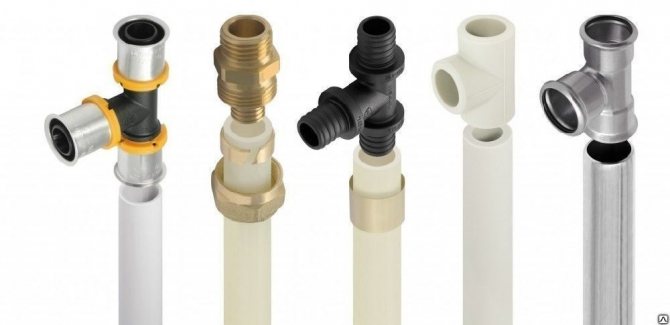

Types of heating pipes
How to determine why heating pipes make noise and what caused this phenomenon? The first step in identifying the causes is to follow the methodology described above. So, a constant hum may indicate incorrect operation of the circulation pump.
The noise of water in heating pipes can be caused by a number of factors. Often they are complex in nature - as if adjusting to each other, they create a complex kind of sound effects.Let's deal with the cause of noise in heating pipes by the nature of the sound:
- Bubbles and clicks indicate a blockage in the pipes.... A decrease in the bore diameter creates excessive pressure in a certain section of the system, which is the cause of noise;
- Cracking sound causes air valve breakage... After checking it and detecting a malfunction, replace it;
- Vibration caused by improper installation... Noise in the heating pipe occurs when the coolant passes - the line can hit the wall.
The easiest way to get rid of extraneous sounds is to flush the heating system. To do this, you can use the methods described above. Diagnosis of incorrect attachment is carried out by touching the line. If strong vibration is felt with simultaneous noise of water in the heating pipes, additional fasteners should be installed.
The water in the heating pipes can make noise due to improper operation of the mixing unit - a large temperature difference leads to the expansion of the metal lines and the appearance of extraneous noise.
Heating pump noise
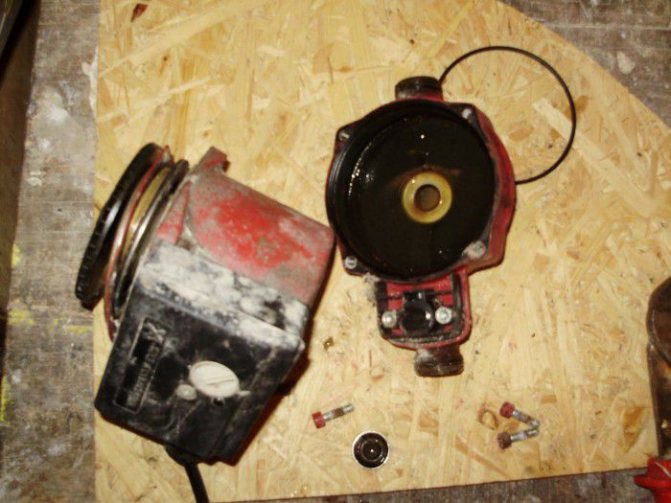

Breakdown of the heating circulation pump
Constant noise in the heating pump may appear due to partial breakdown of its components - the impeller or rotor. At the same time, the functioning of the entire system deteriorates, which leads to a decrease in the efficiency of its work. To eliminate this cause, repair the pump or install a new one.
Also, constant noise in the circulation pump can be caused by its unstable operation. voltage drops lead to a loss of synchronization and, as a result, to an uneven movement of the coolant. This can cause noise in the heating system in other areas - in pipes and radiators. It is possible to check the operation of the pump only after a complete diagnosis. It is impossible to do it at home without special equipment.
In addition, noise effects in the riser or other areas of the heating supply may occur due to a pump malfunction for the following reasons:
- Incorrect installation... The rotor of the device must be strictly horizontal;
- Inconsistency of equipment power with calculated data... This leads to a significant increase in the rate of flow of the coolant through the mains. The only way out is to install a pump of the appropriate power.
In practice, it is extremely difficult to diagnose noise in a heating circulation pump. To do this, it is necessary to dismantle it and disassemble the structure. This can be done only with special skills and diagnostic tools. Therefore, this work is best entrusted to professional repairmen.
For the correct calculation of the pump power, it is recommended to use special software systems.
Heating system arrangement rules
The type of heat source that is located in the house influences the choice of pipe that will be used for the heating system. If the house is gasified, then a gas boiler is supposed to be used. It is usually equipped with:
- elements of protection;
- built-in automation;
- pumps.
If it is not possible to install gas equipment, then an electric or solid fuel boiler is chosen. When arranging and installing a room heating system, you must adhere to the following rules:
- In heating systems, different types of pipes can be combined. Having chosen what kind of heating to do, you should pay attention to their marking. This information will give an idea of how the pipes differ from each other.
- Usually, with two-pipe wiring of systems with natural (forced) circulation, a metal-plastic pipe is used for heating (16x2.0).
- With a building area of, for example, 100 m2, the length of the pipeline that supplies water to the radiators from the gas boiler should be less than 25 m.
- If it is necessary to connect a large number of radiators, a double-circuit wiring is used, and the pipe for organizing heating must have a large diameter.
- It is also necessary to bring out the gas heating pipe, designed for exhaust and removal of combustion products.
- Do not install any shut-off valves between the security system and the boiler (eg gas type).
- During installation, the specified distance between the communications should be observed.
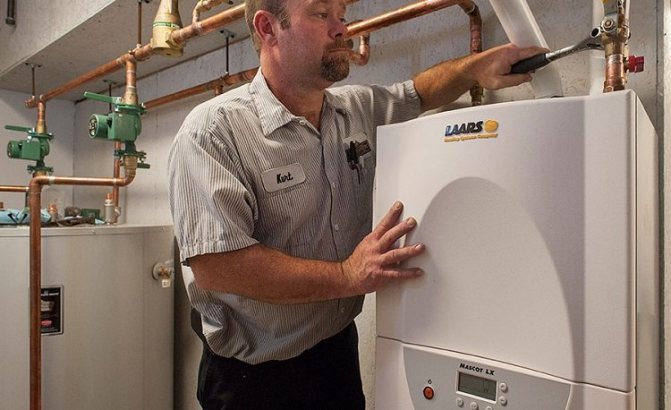

The choice of pipes for heating depends on the type of boiler
In a network with forced circulation, it is better to place a filter in front of the pump. To obtain a complete and more beautiful look, the use of contours for heating pipes under the laminate is practiced.
